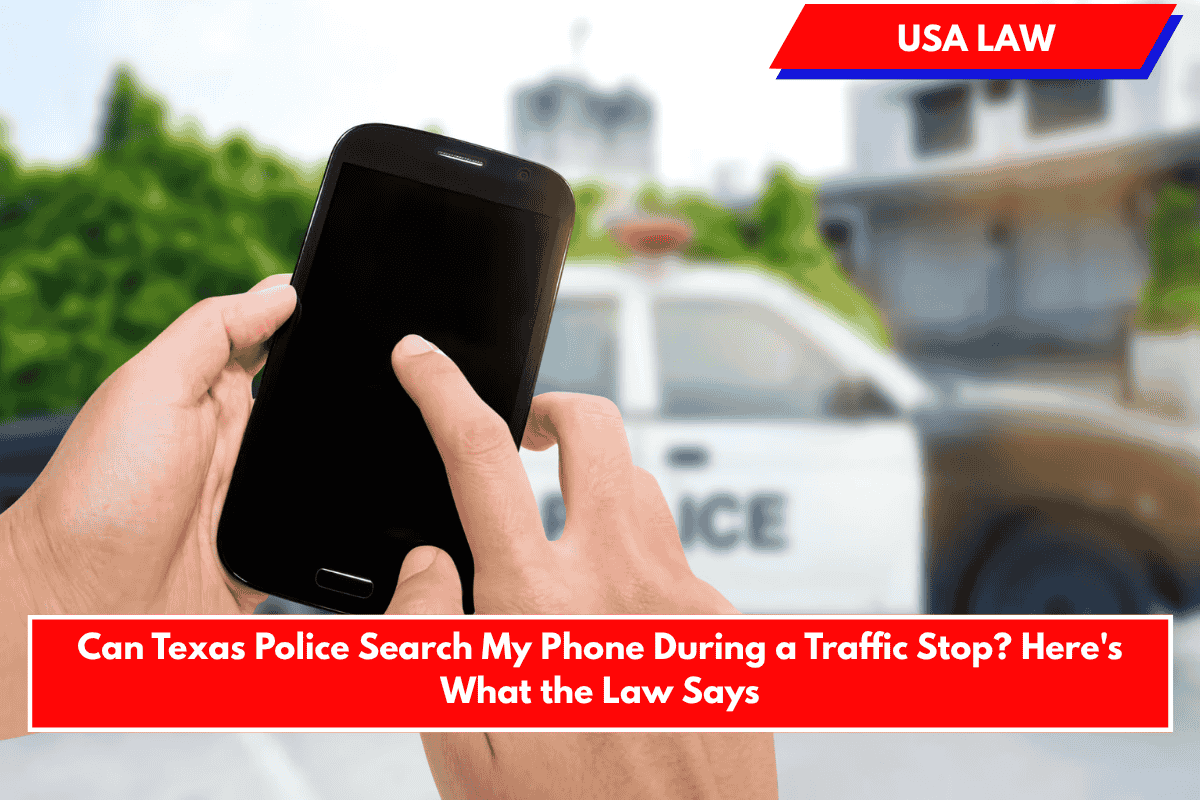General Rule: Warrant Required
In Texas, police generally cannot search your phone during a traffic stop without a warrant. Both the Fourth Amendment of the U.S. Constitution and Article I, Section 9 of the Texas Constitution protect your right to privacy in your digital devices, including smartphones. This means:
- Police must have a search warrant—signed by a judge and supported by probable cause—to access the contents of your phone, even if you are arrested during the stop.
- You have the right to refuse a search if an officer asks for your phone or requests your passcode or fingerprint. Refusing is not an admission of guilt; it is an assertion of your rights.
Exceptions to the Warrant Requirement
There are a few narrow exceptions when police may search your phone without a warrant:
- Consent: If you voluntarily give police permission to search your phone, they do not need a warrant. Anything found can be used against you. You are not required to give consent, and you should be clear if you wish to refuse.
- Exigent Circumstances: Police may search your phone without a warrant if there is an urgent need, such as:
- Preventing imminent harm or death
- Avoiding the destruction of evidence
- Pursuing a fleeing felon
- Stopping an ongoing crime
These situations are rare and must be clearly justified. Courts scrutinize these claims closely, and most routine traffic stops do not meet this standard.
Important Legal Precedents
- State v. Granville: The Texas Court of Criminal Appeals affirmed that individuals have a reasonable expectation of privacy in their cell phones, even after arrest. Police cannot search the contents of a phone without a warrant or exigent circumstances.
- Riley v. California (U.S. Supreme Court): Reinforced that cell phones are protected by the Fourth Amendment, and warrantless searches are not allowed except in true emergencies.
What Should You Do During a Traffic Stop?
- Provide your driver’s license and registration as required by law.
- If asked to hand over your phone or unlock it, politely decline unless the officer presents a valid warrant.
- Do not consent to a search unless you are certain you want to.
- If your phone is searched without your consent or a warrant, contact a defense attorney. Evidence obtained unlawfully may be excluded from court.
Texas Police Phone Search Rules
| Scenario | Can Police Search Your Phone? |
|---|---|
| Routine traffic stop | No, not without a warrant or consent |
| After arrest | No, not without a warrant or consent |
| You give consent | Yes |
| Exigent (emergency) circumstances | Yes, but only in rare, urgent cases |
Texas police cannot search your phone during a traffic stop without a warrant or your explicit consent, except in rare emergencies. Assert your rights respectfully and seek legal help if you believe your privacy was violated.
Sources
- https://www.theshapirolawfirm.com/blog/2023/04/can-police-search-my-phone-without-a-warrant/
- https://versustexas.com/blog/can-police-search-my-phone/
- https://www.guestandgray.com/practice-area/privacy-concerns-of-cell-phone-searches-attorney-texas/
- https://law.justia.com/cases/texas/court-of-criminal-appeals/2022/pd-0027-21.html
- https://caselaw.findlaw.com/court/tx-court-of-criminal-appeals/1658707.html











